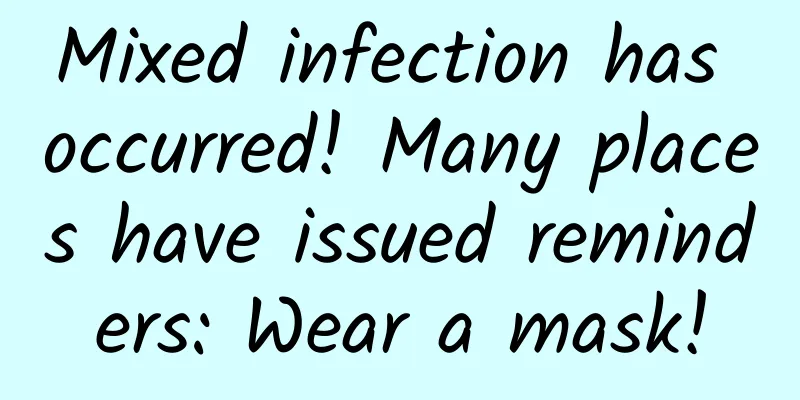I've been in menopause for four years, and it's suddenly back. What's going on?

|
We understand that as women age, the changes in their bodies are more prominent, especially after reaching a certain age, they will experience menopause and then "menstruation" after menopause. To be precise, vaginal bleeding occurs 4 years after menopause, which is called postmenopausal bleeding in clinical medicine. It is a common disease among middle-aged and elderly women. The causes of the disease are complex and the diagnosis methods vary. In the long-term disease diagnosis, vaginal bleeding is one of the common gynecological symptoms and is often the main symptom of female reproductive system cancer, which should be given sufficient attention. Especially for middle-aged and elderly people with weak physical fitness, they should be more careful about spotting during pregnancy after menopause. Next, let’s talk about the actual reasons for spotting during pregnancy after menopause. Postmenopausal bleeding may be caused by diseases of the private parts, vagina, uterus, ovaries and bilateral fallopian tubes. Its pathogenic factors may be inflammatory, endocrine (endogenous or iatrogenic), trauma, foreign body, or even systemic exudative diseases. This disease may be benign, malignant or non-organic. Vaginal bleeding may be due to organic disease. Such as endometritis, submucosal uterine fibroids, uterine intrauterine polyps, malignant tumors of the uterus and ovaries, cervical erosion, cysts and various vaginitis, especially vaginitis in the elderly is the most common. When vaginitis in the elderly is more serious, the secretion is pus-like, has an odor, and may also cause spotting. If the IUD is left in place for a long time after menopause, the ovaries will shrink and the body's estrogen level will decrease, causing the uterus to shrink and the IUD to become embedded in the uterine muscle layer. Damage to the uterine wall and muscle layer can also cause vaginal bleeding. Regular consumption of bee pollen and nourishing supplements containing hormones may also cause vaginal bleeding. Vaginal bleeding after menopause should be carefully identified. In most cases, it is not a big problem and you don't need to be too anxious, but you still have to pay attention to it. You should go to the hospital for some necessary examinations and further clinical observation. |
<<: Does menopause just disappear in an instant?
>>: I have seen redness again after more than a year of menopause
Recommend
How to treat vaginal itching
If a woman experiences itching at the vaginal ope...
Business Insider: Social Media Statistics for 2013
We all like to talk about social networks in term...
What should I do if I have diarrhea after eating yacon? When is the best season to eat yacon?
Yacon is a low-calorie food that contains a lot o...
What can women eat to replenish liver blood?
Girls nowadays no longer always rely on men. We c...
What is the normal metabolism of girls?
Metabolism has a lot to do with the food we eat e...
Pregnancy with adenomyosis and adenomyoma
Women in their thirties and forties are very pron...
If there is a fetal heartbeat at 6 weeks but no fetal heartbeat at 8 weeks, will the pregnant woman be misdiagnosed after 6 weeks of pregnancy?
With the development of medical technology, the d...
Why do I have lower abdominal pain one week after having sex during ovulation?
Female friends, do you understand your own body? ...
Twenty days after the abortion, blood flowed again
If a woman needs to have an abortion, she needs t...
Breast tenderness and lumps before menstruation
Having beautiful breasts is the pursuit of many p...
How to maintain the uterus after spontaneous abortion?
Every woman will always be particularly careful a...
Who should eat Lingzhi roe deer powder? What should be paid attention to when eating Lingzhi spore powder?
With the improvement of the quality of life, more...
What is the reason for the bloody coffee color of vaginal discharge?
Not paying attention to hygiene habits is the eas...
Why does cervicitis and vaginitis occur?
I believe all female friends are very aware of th...
How many days does it take for menstruation to come after the increase of leucorrhea?
Leucorrhea, like menstruation, is related to wome...









